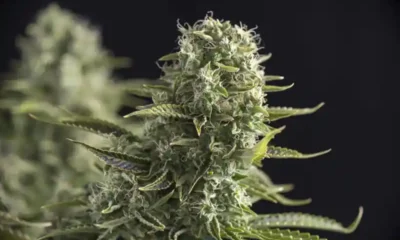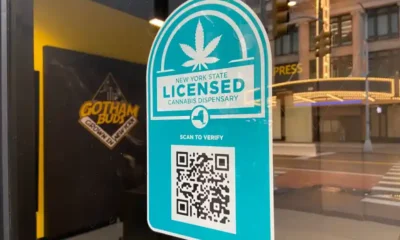Connect with us
Published
7 months agoon

Earlier this year, Minnesota became the 23rd state in the country to legalize recreational cannabis use for adults over 21, which officially went into effect Aug. 1. Medical cannabis has been legal in the state since 2014, but still, one Elk River family has to adamantly fight for their daughter to have access to her medical cannabis on school grounds.
Over the weekend, their efforts finally paid off, according to a CBS News report.
Crystal Mattis has autism spectrum disorder and epilepsy and uses medical cannabis midday through a CBD and THC oil her parents mix with juice. The new state law that legalized recreational cannabis in Minnesota this year bans cannabis use and possession on school property, though there is an exception for authorized medical use so long as the product is in a non-smokable form.
After facing pushback from Crystal’s school district, telling the parents Kyrstal would have to leave school property to get the medication before returning, Sabrina and Tim Mattis contacted one of the authors of the law, DFL Rep. Zack Stephenson, for clarity. Sabrina also hired an attorney willing to take on the case pro bono if school officials didn’t reconsider their choice.
On Friday, the school district superintendent reached out to the family via email to inform them that 9-year-old Krystal would be able to take the medication on school grounds after all.
“We are so thrilled for Krystal to be able to go to school full time. It’s a huge accomplishment for her,” Sabrina Mattis told CBS News in a Monday interview. The district will work with Sabrina to figure out how and when Krystal can take her daily dose of cannabis oil, rather than removing her from school and disrupting her day, potentially leading to added stress.
Sabrina highlighted the updated policy as a win for her daughter and other children like her who use medical cannabis products. Of the over 40,000 patients enrolled in the state’s medical cannabis program there are 450 children under 18, according to state data.
“I felt like her advocate,” Sabrina said. “Parents need to advocate for their kids to create change and I just hope to continue to do that for Krystal and other medical cannabis students in Minnesota.”
While the school district didn’t respond to a request for comment as of Monday evening, a spokesman previously said that the district could “not comment on a student’s medical interactions with our schools,” due to privacy reasons.
Even though Krystal’s parents are grateful for the policy change, Sabrina cited the challenges of carving out time in her day, alongside two other young children, to come to Krystal’s school and deliver her medicine each day. While it’s a step in the right direction, she highlighted that this simply shows there’s still more to be done when it comes to children using medical cannabis products in schools.
“If you’re going to allow medical cannabis on school property, we need laws to allow the school to administer for the safety of the students and the inconvenience it is for parents that work or parents that have other responsibilities,” Sabrina said.
The family cited a Colorado law, which deems that districts must have policies regarding storage and administration of medical cannabis by willing school personnel. Staff who choose not to provide students doses are not forced or punished, and those who are up to the task acting in good faith to administer medicine to students are provided civil and criminal immunity.
Any volunteer or school personnel who administers the medicine must do so in accordance with the instructions provided by one of the student’s recommending physicians, including dosing, timing and delivery route instructions. The Colorado law also requires school principals to create a written treatment plan for the administration of cannabis-based medicine and on school boards to adopt policies regarding the actual administration.
The Mattis family is hoping that Minnesota will soon pass a similar law and has started a petition to get others on board, with hopes that the legislature will consider such changes when they return next February.


No Increase in DUI Among Young Adults After Pot Legalization in Washington


Berner To Join Cast of The Freak Brothers


Moroccan Farmers Urging Government To Legalize Cannabis


Study: Researchers Present Benefits of Entourage Effect


Anti-Pot Org Claims DEA Administrator Was Not Included in Rescheduling Decision


Some NY Lawmakers Say Illicit Pot Shops Must Close Before Adding Licensed Shops
